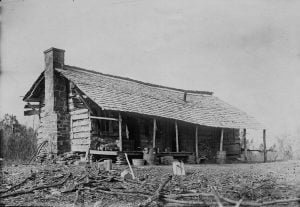Fort Coffee Academy
In the month of March, 1813, Rev. William II. Goode was appointed Superintendent of Fort Coffee Academy, and Henry C. Benson was appointed teacher. At the time, the former was presiding elder of South Bend district, and the latter was the junior preacher of Mooresville circuit; both were of the Indiana conference. We were regularly transferred by Bishop Soule to the Arkansas conference. Mr. Goode made provision for his family during his absence, and immediately set out upon his journey for his distant field of labor. He went to Cincinnati, where he procured the necessary outfit and supplies for the … Read more

